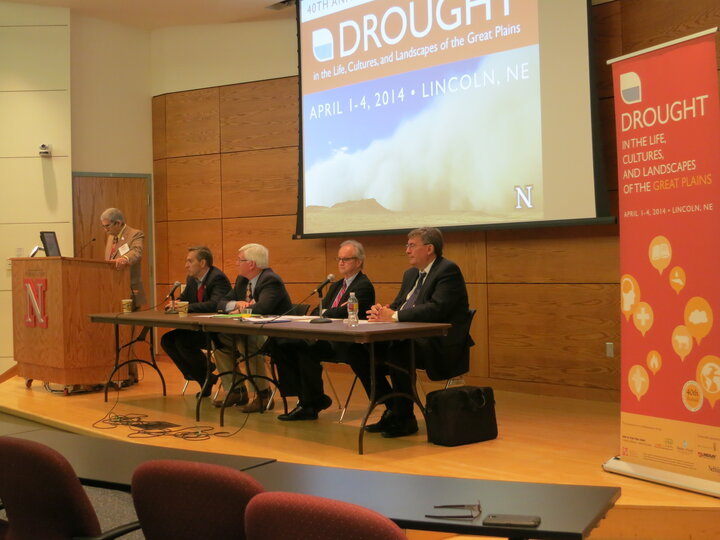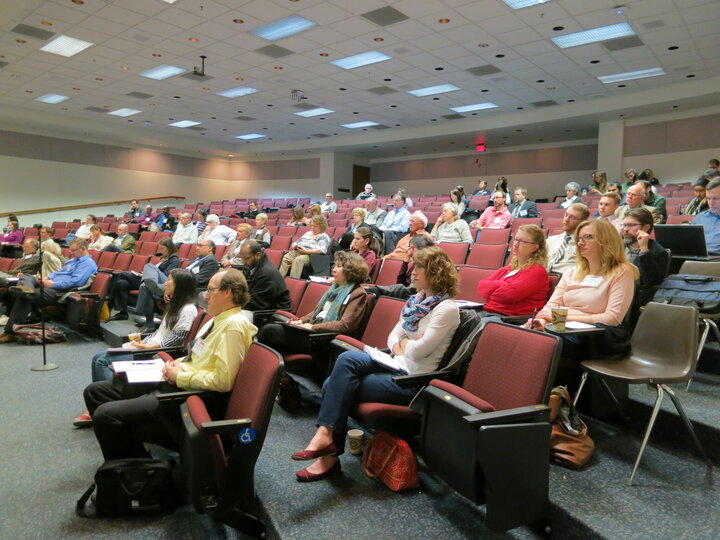Content
Drought in the Life, Cultures, and Landscapes of the Great Plains
April 1-4, 2014 at the University of Nebraska at Kearney
2011 and 2012 witnessed two of the worst Great Plains droughts in recent memory, a tragic counterpoint to the damaging floods of 2011 and a return to the stressful times of 1998-2006. Drought is a recurring pattern in this semi-arid region, with severe droughts in the 1890s, 1930s, 1950s and 1980s. Indeed, using tree ring, lake sediment, and dune records, scientists have documented the periodic return of severe droughts. Based on such evidence, some scientists have observed that drought was the dominant feature of climate rather than the exception. Drought has been and will continue to be a normal part of the climate of the Great Plains and may increase in frequency and severity in the future as a result of projected changes in climate.
Drought or the ever-present threat of it has had a pervasive effect on the region and its people. It molded the region's settlement patterns, agriculture and commerce, stimulated innovation, aroused conflict between agriculturalists and environmentalists, and fueled litigation between states. Drought shaped how the people of the Great Plains think of themselves and their region and influenced their culture, literature, and art. Today it raises concern about whether the region will have sufficient water for its future.
Scientists, scholars, corporate leaders, writers, agency officials, farm leaders, and others from across the full spectrum of disciplines and organizations shared their expertise and perspectives as the symposium explored all aspects, causes, impacts, projections, social and cultural consequences, and ramifications of drought in the Great Plains.
The 40th annual Center for Great Plains Studies symposium was a collaboration with the National Drought Mitigation Center and the Robert B. Daugherty Water for Food Institute.
Supported by
- National Drought Mitigation Center
- Robert B. Daugherty Water for Food Institute
- Vice Chancellor of the Institute for Agriculture and Natural Resources
- Senior Vice Chancellor for Academic Affairs
- Office of Research and Economic Development
- The Great Plains Cooperative Ecosystems Studies Unit
- Lindsay Corporation
- Monsanto
Symposium in the news
- Prairie Fire Newspaper, March 2014: Symposium Examines Drought in the Great Plains Landscape and Culture
- Omaha World Herald, 3/24/2014: UNL drought symposium will hear from 40 speakers
- Lincoln Journal Star, 4/2/14: Droughts are the rule, rather than the exception in Nebraska
- Omaha World Herald, 4/5/14: Warming on the Great Plains: Don't look for drought relief in forecast
- Nestle chairman Peter Brabeck-Letmathe: A Water Challenge

